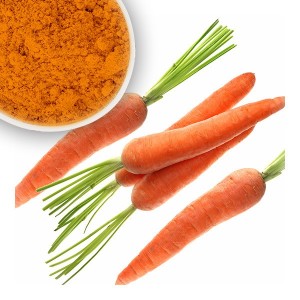Vitamin B2 is one of the 8 water-soluble B vitamins, meaning the body cannot store them. Riboflavin is destroyed by light and heat and in an alkaline medium. It is absorbed in the upper part of the small intestine, is increased with food and delayed on an empty stomach.
Contents
Uses
As with many B vitamins, riboflavin must be converted to its active form – riboflavin 5′-phospate (R5P) – in order for it to be utilized by the body. Because absorption of riboflavin occurs in the upper GI tract, a compromised digestive system can adversely affect the body’s ability to convert riboflavin to R5P
Benefits
- It contributes to normal energy yielding metabolism – Vitamin B2 is required in its coenzyme form (FAD) for participation in the Citric Acid cycle to produce energy.
- It contributes to normal functioning of the nervous system– Again in its Coenzyme form, FAD , Vitamin B2 is needed for the monoamine oxidase enzyme, which functions in the metabolism of neurotransmitters ( brain chemicals ) for normal functioning of the nervous system.
- It contributes to the maintenance of normal red blood cells- Vitamin B2 improves iron absorption and riboflavin deficiency induces anaemia , where there are immature red blood cells.
- It contributes to the maintenance of normal skin and mucous membranes–both acute and chronic deficiencies result in mucocutaneous lesions that disappear after adequate doses of B2 are given.
- It contributes to the maintenance of normal vision– Riboflavin deficiency is associated with decreased activity of the enzyme glutathione reductase, the enzyme responsible for the production of glutathione. Reduced glutathione protects the lens of the eye from oxidative damage and is decreased in cataracts. Riboflavin deficiency can cause conjunctivitis with vascularisation of the cornea and opacity of the lens (cataracts).
- It contributes to the normal metabolism of iron. Iron metabolism is impaired in riboflavin deficiency. The utilisation of iron reserves from the intracellular protein ferritin requires riboflavin. Riboflavin is required for haemoglobin synthesis.
- It contributes to the protection of cells from oxidative stress. Vitamin B2 participates in many reactions where the cofactors P-5-P and FAD act as electron carriers, protecting the DNA, proteins and lipids from oxidative damage.
- It contributes to the reduction of tiredness and fatigue As Vitamin B2 is involved in manufacturing energy adequate doses of B2 contribute to normal metabolism resulting in energy.
Cautions
-
- For dietary supplement use only,
- Keep Vitamin B2 (riboflavin) supplements out of reach of children,
- Do not exceed recommended dosage,
- If you have a bad reaction, discontinue use immediately,
- When using, please inform your physician,
- If you are pregnant, lactating or have a medical condition, consult your health care professional before using this or any other nutritional supplement,
- If the effects of allergic reaction occurs, discontinue Vitamin B2 ( riboflavin) immediately.
Interactions
We currently have no information for Riboflavin 5 Phosphate Interactions
Other names
Riboflavin 5′-phosphate ester monosodium salt, Vitamin B2 phosphate ester monosodium salt
References
Source: Metabolics.com, http://www.metabolics.com/riboflavin-5-phosphate-100ml.html
Smartbodyz, http://www.smartbodyz.com/Vitamin-B2(riboflavin)benefits-deficiency-effects.htm
Thorne Research, https://www.thorne.com/products/dp/riboflavin-5-phosphate

